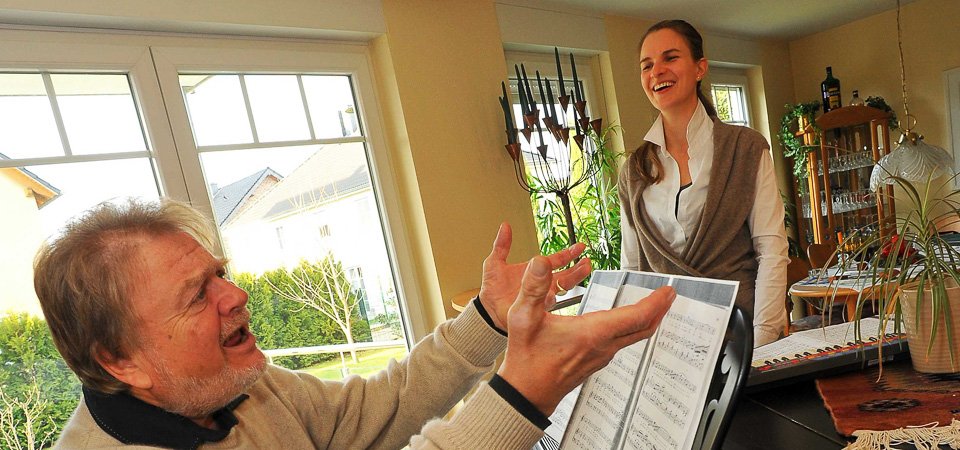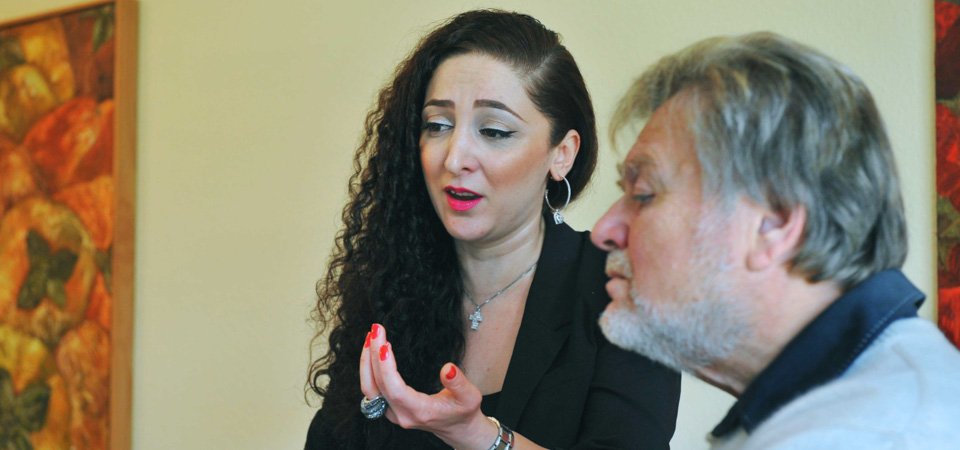Curriculum
Lied/Song
- Building a repertoire
- Study of the great Lied cycles
- Lied interpretation, with a focus on the relationship between words and sound
- Lyric speaking and singing as a unity
- Elucidation of difficult text passages (historical and mythological allusions, citations, etc.)
- Developing Lied and concert programs (with special consideration of anniversaries and jubilees):
o Coordinating theme and style; poets and/or composers as a common thread
o Varying dynamics and rhythm throughout the program; building up tension over the course of a program; sequence of keys; original key or transposition; etc.
Oratorio
- Part studies for all voice registers (oratorios and sacred music from the baroque period until the
present) - Mastering the great evangelist parts
- Color and significance of language during the Annunciation
- Instrumental singing (senza vibrato) and singing with natural vibrato
- Emotions in sacred music
- Stylistic considerations
- Theological, religious, and biblical backgrounds
Opera
- Role studies for all voice registers and preparation for role debuts
- In-depth character analysis and dramaturgical classification of the character's scenes
- Detecting the emotional development of a character
- Attempting to find a matching vocal color to express the detected emotional states
- Avoiding overexertion of the voice and pacing oneself over the course of a performance
- Developing an vocabulary of gestures and facial expressions for a given role
Supplemental Curriculum
- Repertoire counseling – accompanying the change to another subject, preparing for auditions
- Career counseling (agency recommendations; negotiating strategies; developing an annual performance schedule; outlining a schedule for the gradual development of repertoire)
- By prior arrangement: Critical analysis of attended performances and stage acts
Additionally:
Monthly auditions for conservatory applicants and young singers seeking assessment of their vocal
development.
2 master classes annually, with a maximum of 6-8 participants (including ensemble work)
Recommendations for experienced pianists (coaches, tutors, Lied accompanists)

